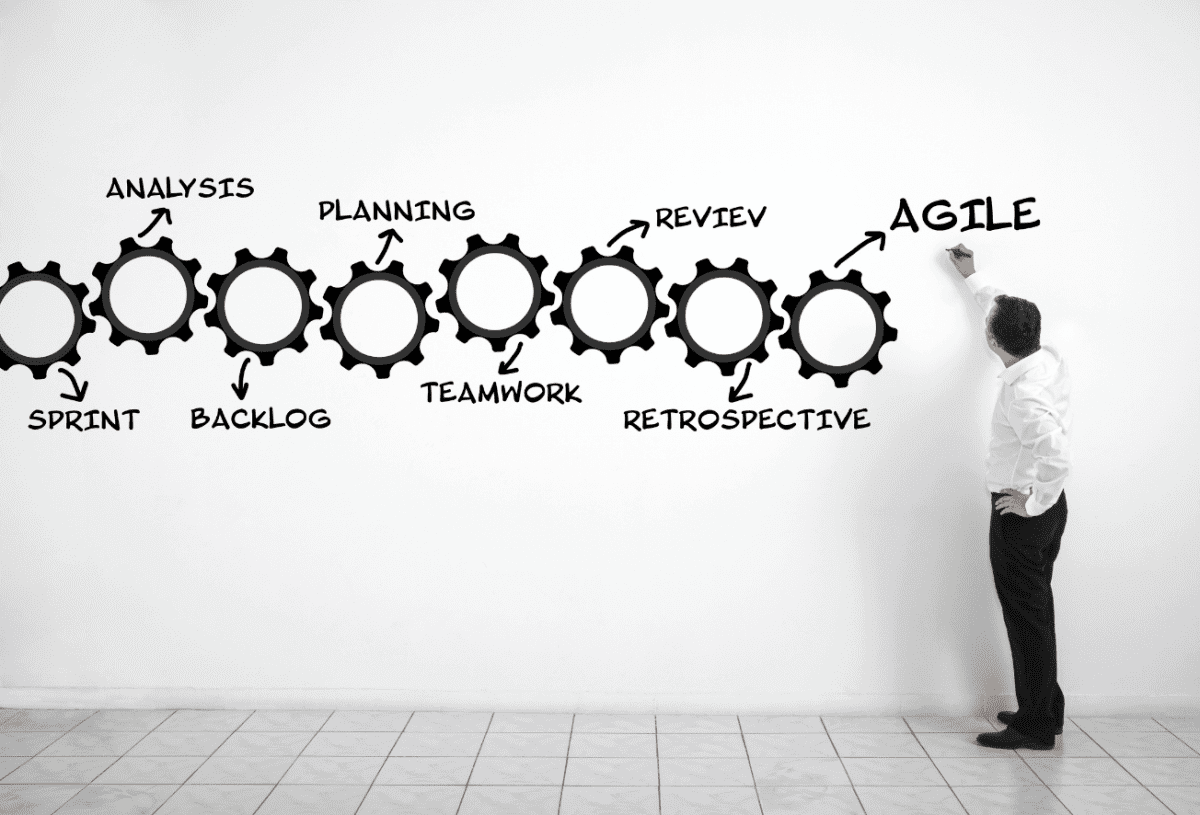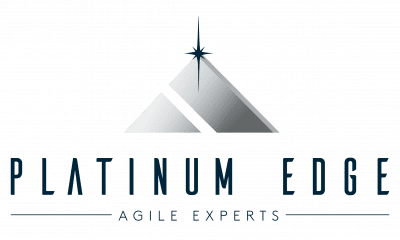Common questions we hear a lot are, “What’s the difference between a scrum master vs. an agile coach? Isn’t a scrum master an agile coach? Do I need both?”
Agile coach vs scrum master
An Agile coach focuses on guiding the entire organization toward Agile best practices and fostering a culture of continuous improvement, while a Scrum Master works more closely with individual teams to ensure they follow Scrum principles and processes effectively.
To break down these questions, let’s look at both roles and the similarities and differences between them.
The scrum master
The scrum master is the servant leader to the scrum team. They create the environment for success, ensuring the team has everything they need and that no impediments hinder them. As scrum experts, they portray scrum values and practices, coach, mentor, inspire, and serve.
A focus on cultivating high-performing teams
Scrum masters ask the thought-provoking questions to help their team reach their full potential. They also shield the development team from external influences that could prevent achieving sprint or release goals. They facilitate team events (when asked), build rapid team consensus, and focus on helping their group become a high-performing team that can accomplish any objective and overcome any obstacle.
Coaching the team and organization
Scrum masters coach their scrum team and the organization in the best ways to work with them. They become organizational agile champions to everyone and foster close cooperation with the functions interfacing with the scrum team.
Scrum masters use their organizational relationships and clout to resolve and prevent impediments and challenge the status quo. Like aeronautical engineers reducing drag on airplanes, scrum masters reduce drag on their team. They are the daily driver of team velocity increases as they remove the organizational drag.
The agile coach

The agile coach, also known as an agile mentor, is a supportive role for the organization and scrum teams. Agile coaches have experience in at least one of the scrum team roles (product owner, development team, or scrum master), preferably more than one. They are most effective in helping organizations develop new expertise, such as proficiency with scrum. Ideally, the agile coach is external to the project’s department or organization, so they can objectively support the scrum team or organization.
Agile coaches help create the right environment for success
As new scrum teams begin (and may not have an experienced scrum master), an agile coach is essential in helping them take what they’ve learned and apply it to their product work. At first, they’ll mentor the scrum master and team by showing them how to facilitate scrum events and interactions, as well as techniques for addressing conflict, swarming, or building consensus. They’ll demonstrate to the team how to define a product vision and roadmap. They’ll ensure short feedback cycles, as they teach the team how to embrace and leverage empirical process controls (test and learn).
As the team becomes more proficient with scrum, the agile coach will move into a supportive coaching role providing the team with feedback but mostly enabling the scrum master to become the team’s coach.
Establishing an ATT
Experienced in agile techniques and the scrum framework, the agile coach mentors and assists the team and the organization in adopting agile values and principles. Essential to that is helping the organization establish an Agile Transition Team (ATT). The ATT, which also operates as a scrum team, ensures the new teams have executive sponsorship and that the organization can move forward with their agile maturity journey.
In an organization new to agile techniques, an agile coach assists up to two teams (the new pilot team and the ATT). Extending a coach further than two teams reduces their effectiveness (preferring even one team at a time – sound familiar?). Agile coaches also coach leadership one on one through a transition from more traditional structures and approaches to more agile ways of leading.
Navigating agility
As the grass roots take hold, the agile coach is instrumental in helping leaders navigate the rushing waters of business agility. An organizational environment can constrain teams, and the agile coach supports the ATT to nurture agility. The coach’s influence, inspiration, and guidance help everyone adapt to the changes.
How are a scrum master and agile coach similar?
Scrum masters and agile coaches have many responsibilities in common, such as:
- They both are experts in scrum and business agility.
- They both coach and mentor teams and organizations to improved performance and value creation.
- They both ask tough, thought-provoking questions and strive to help people learn a better way for themselves.
- Both are agile champions, setting an example of agility for everyone in the organization.
- Both work to enable high performing teams. As the team becomes more proficient in the fundamentals, the scrum master turns his or her attention to removing more difficult organizational impediments. Their job only gets more difficult. Agile coaches do likewise.
- Both are servant leaders.
How are they different?
Below is a list of some of the primary ways they are different:
| Topic | Scrum Master | Agile Coach |
| Scrum Training | CSM minimum, A-CSM & CSP-SM ideal, CTC, CEC, or CST | CSP, CSP-SM, CSP-PO minimum, CTC, CEC ideal |
| Coaching Focus | Their scrum team first, then the organization | The organization through coaching teams and leaders |
| Employment Status Recommendation | Employee: Organizations wanting to build scrum expertise are wise to invest in a full-time scrum master. Contract scrum masters may seem short-term. All scrum knowledge acquired will walk out the door when the contract ends. | Employee or Consultant: Consultant preferred. Employee agile coaches can be effective if the organization empowers them. Empowering consultant agile coaches is often more effective because they can remain independent and unbiased. An independent consultant can often tell you the things you don’t want to hear. Employee agile coaches may hold back to protect their employment or become muzzled due to their reporting chain of command. |
| Required Experience | Previous experience in a servant leader role helpful | Several years of scrum master experience with multiple teams and organizations. A diversity of experience is helpful having worked to successfully navigate an agile transition in a variety of roles, industries, business types, product types, etc. |
| Scrum team focus | Intimate understanding of each team member and the team overall | Supportive of scrum master. Coach is aware of the team challenges and works to enable the team to contribute to the success of the organization. |
Legend
CSM = Certified ScrumMaster
CSPO=Certified Scrum Product Owner
CSD = Certified Scrum Developer
A-CSM = Advanced Certified ScrumMaster
A-CSPO = Advanced Certified Scrum Product Owner
CSP-SM =Certified Scrum Professional – ScrumMaster
CSP-PO = Certified Scrum Professional – Product Owner
CSP = Certified Scrum Professional
CTC = Certified Team Coach
CEC = Certified Enterprise Coach
CST = Certified Scrum Trainer
Scrum master vs. agile coach: one or both?
Do you need a scrum master and agile coach? Obviously, it depends on your situation, but both can bring a great deal of value through coaching, competency with agile techniques, and servant leadership. Whether the contribution comes from a scrum master or an agile coach, they both benefit the organization, enabling ever-improving teams, organizations, and products that delight your customers.
With our 20 years of experience helping organizations become more agile, we can help you build strong and effective scrum masters and agile coaches. Explore our coach and mentor services today.


